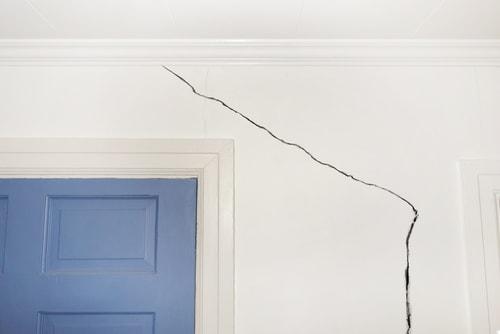1512 Artaius Parkway, Suite 300,
Libertyville, IL 60048
Call for a FREE Phone Consultation
847-549-0000
Video Consultations Also Available
 Spanish
SpanishServing Clients Across 7 Illinois Locations
What You Should Know About Addressing Construction Defects Through Litigation
 Few things are more frustrating than finding that your home was built with some type of defect. These defects may not be discovered for many years down—long after explicit warranties have expired. In most cases, even your homeowners insurance will not help you recoup the costs to fix the construction defect.
Few things are more frustrating than finding that your home was built with some type of defect. These defects may not be discovered for many years down—long after explicit warranties have expired. In most cases, even your homeowners insurance will not help you recoup the costs to fix the construction defect.
Your Insurance Might Not Cover You for Construction Defects
The typical homeowners insurance policy is intended to protect homeowners from specifics types of losses. Such a policy will generally cover the structure of the home, as well as other buildings on the owner’s property, such as a detached garage or tool shed. The policy will also usually cover replacement costs for personal property that is stolen or destroyed by a covered risk, such as a fire. Most homeowners policies also include a level of liability protection in the event that another person is injured while visiting the property.
However, homeowners insurance usually does not cover construction defects or poor workmanship. In fact, most policies contain language that specifically excludes any type of “faulty workmanship.” This leaves many owners of defective homes unable to collect from their insurance for the defects. Sometimes, their only option is to sue the general contractor or subcontractor.
Issues With Construction Defect Claims
Construction defect litigation is complicated, and each contract must be carefully reviewed. Some contracts between a builder and the owner of the property include a list of specifications or make reference to a model home. These may become part of the contract and the builder can be held liable if the delivered building deviates from the contract.
In other cases, the owner signs away many of their rights to pursue the builder for defects and are left with a general warranty that typically only gives the owner a short window—usually one year—in which to pursue limited damages against the builder. Many defects, however, are so-called latent defects and are not discovered for several years after the initial construction.
Illinois law does provide homeowners with an implied warranty of habitability, which is almost never signed away. The implied warranty of habitability allows purchasers of new homes who have no other options to pursue claims against the builder to sue for damages if the home has defects that interfere with the buyer’s expectations that the home would be reasonably suited for its intended use. You have up to ten years from the date of the construction to bring a claim under the implied warranty of habitability. To be successful, you would need to prove that the defect in question is the reason why the home is not able to be used as intended.
Contact a Lake County Residential Real Estate Attorney
If you have questions or concerns about construction defects in your home, contact an experienced Libertyville real estate attorney at Newland & Newland, L.L.P. today. Call 847-549-0000 to schedule a free, no-obligation consultation and case review. We will work with you in exploring your options for taking action.
Sources:
http://www.ilga.gov/legislation/ilcs/fulltext.asp?DocName=073500050K13-214
https://www.allstate.com/tr/home-insurance/contractor-damaged-home.aspx
 Stop Foreclosure
Stop Foreclosure
















